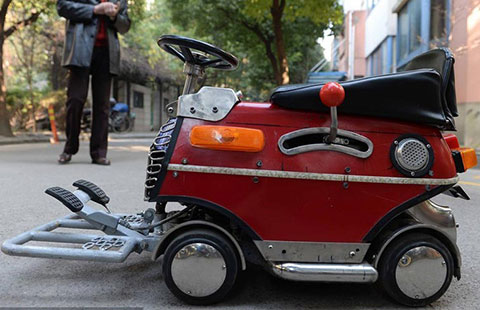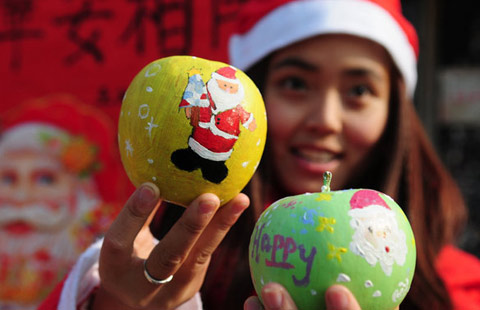On Xmas, US diners take a bite of ersatz Chinese
By Lian Zi in San Francisco (China Daily) Updated: 2014-12-27 09:35
The legend that a lot of people eat Chinese food at Christmas has actually been backed up by quasi-scientific data.
According to Google Trends, which began tracking the trend in 2004, the consumption of Chinese food increases dramatically during the holiday, with a spike in searches for "Chinese food". GrubHub, the online delivery service, also said it shows a 152 percent spike in sales at its participating Chinese restaurants during the Christmas period.
The Washington Post said that the relationship with Jewish people, especially, in the US and Chinese cuisine during the holiday is well-documented. The Post said that for American Jews, "eating Chinese food reaches its pinnacle on Christmas", because they regard the food as a special occasion, according to Joshua Eli Plaut's book A Kosher Christmas in 2012.
The tradition has been so widespread, according to Plaut, that even Orthodox Jews head to Chinese restaurants that do not serve restricted foods such as pork and shellfish.
A story by Adam Chandler in The Atlantic online on Tuesday said the relationship between the Jewish and Chinese immigrant communities goes back to the turn of the 20th century, when they lived in close proximity on the Lower East Side of Manhattan.
Chandler wrote that "the chop suey palaces and dumpling parlors of the Lower East Side and Chinatown gave the illusion of religious accordance - a narrow culinary phenomenon that started over a century ago that has managed to grow into a national ritual that is both specifically American and characteristically Jewish".
The most popular item for Chinese food orders on Christmas, according to GrubHub, is General Tso's chicken - which despite the legend of the general that you may find on some paper placemats, that he whipped up the dish to feed his hungry guests after his chef called in sick during a distant dynasty - is not an authentic Chinese dish but an American concoction.
Michael, an employee of CBI Kitchen, a Sichuan restaurant in Milpitas, California, said: "We cater to non-Chinese customers with bilingual menus written both in Chinese and English and supply some American-style Chinese food such as sweet and sour chicken and Mongolian beef that could not be seen in China."
Another natural reason for Chinese food consumption on Christmas is that Chinese restaurants are open 365 days a year, while many other restaurants close on Dec 25.
The US is home to more than 46,000 Chinese restaurants even though Chinese Americans make up less than 1 percent of the US population. Roughly one-third of all ethnic restaurants in the US serve a Chinese menu, and most supermarkets carry a line of Chinese food products.
"Fusion cuisine or a mixture of Chinese cuisine with another culture, or cooking style, has also become a trend in all restaurants across the nation," according to Chinese Restaurant News.
William Hennelly in New York contributed to this story.
- Three new FTZs get nod
- Fuel prices to be cut on Saturday
- Wanda takes over e-payment company 99Bill
- Home prices to decline, purchase limits to end
- Holiday travelers poised to cash in on strong yuan
- China cuts retail oil price
- Date set for pivate operators to enter broadband market
- Yuan to see normal fluctuations in 2015
















